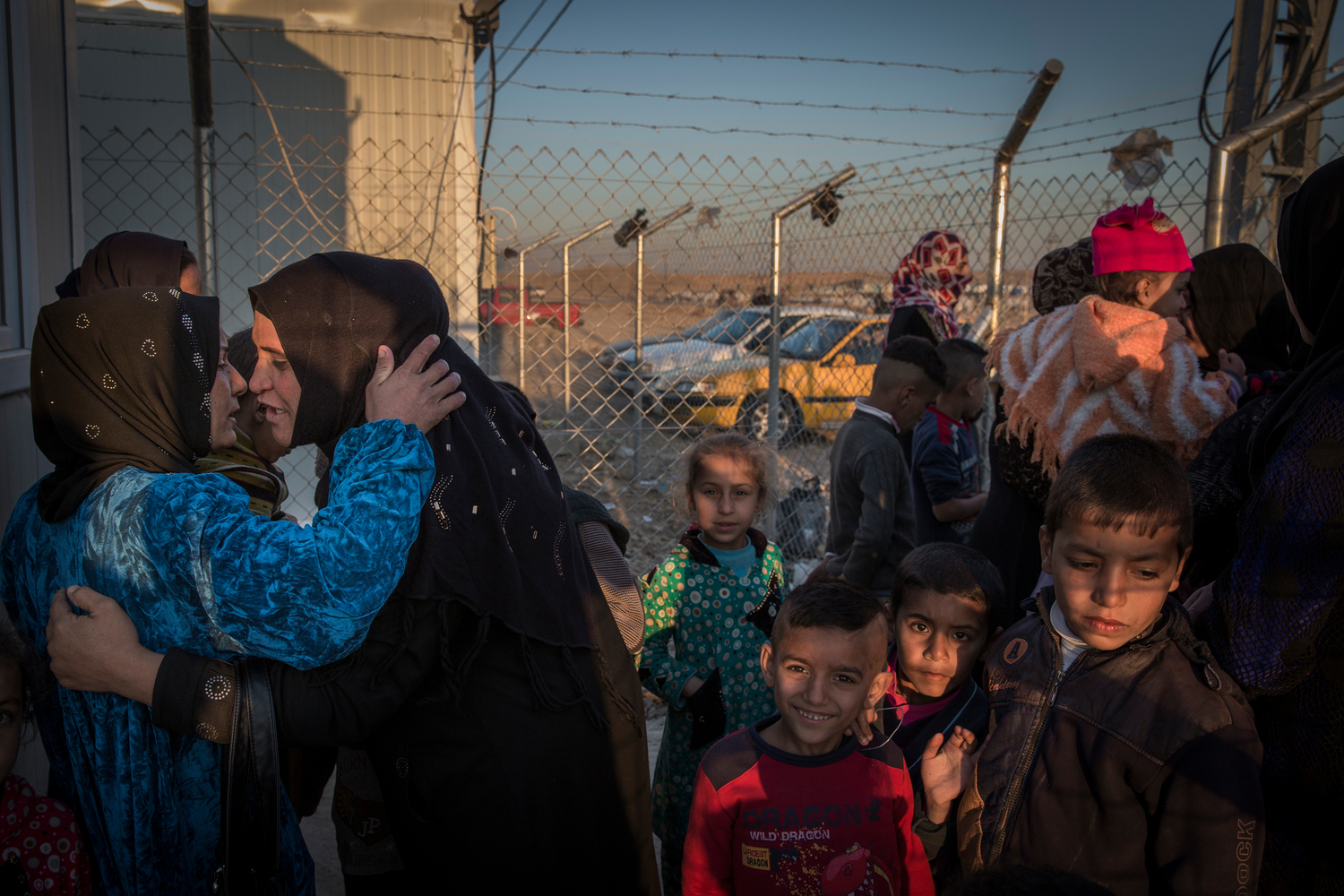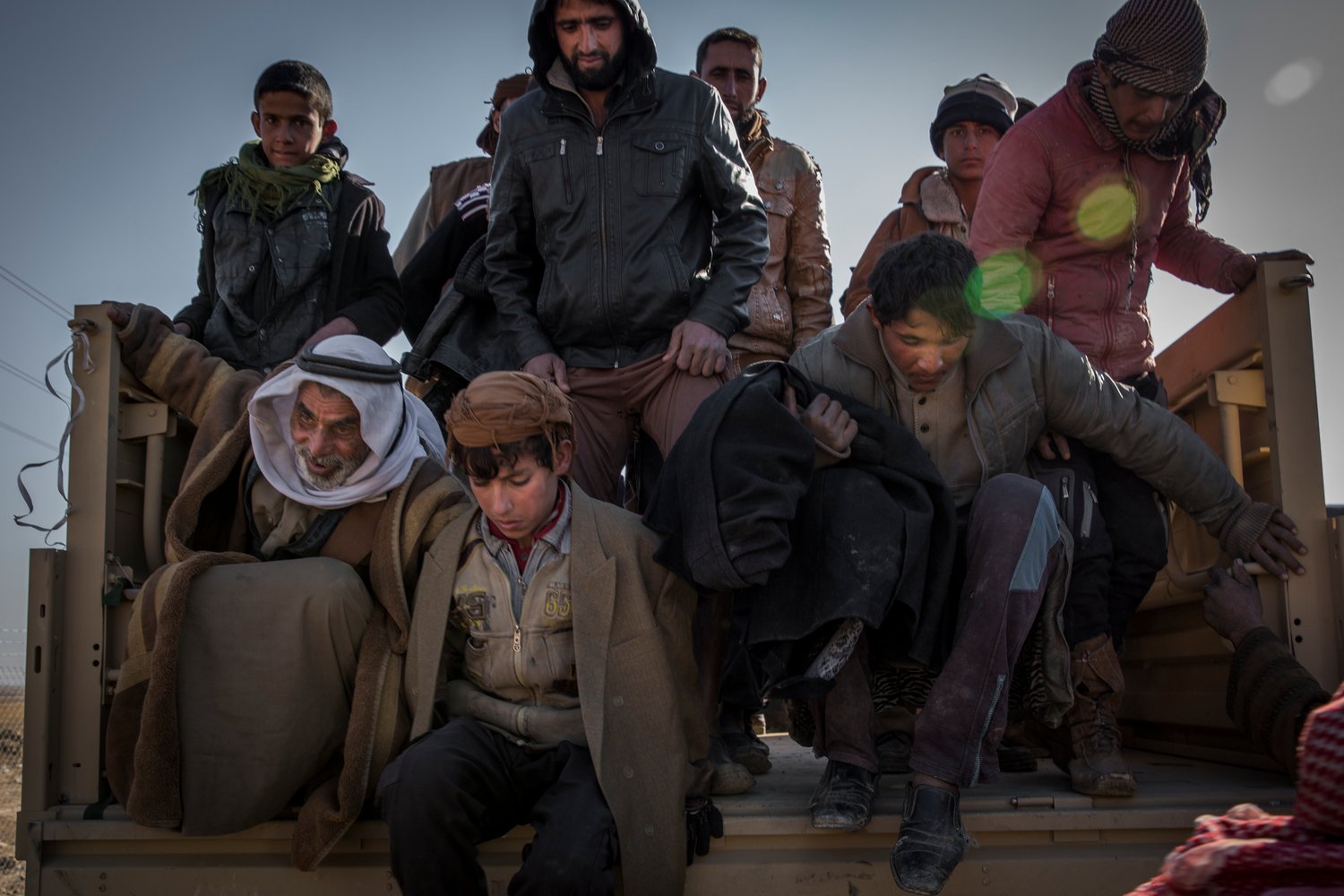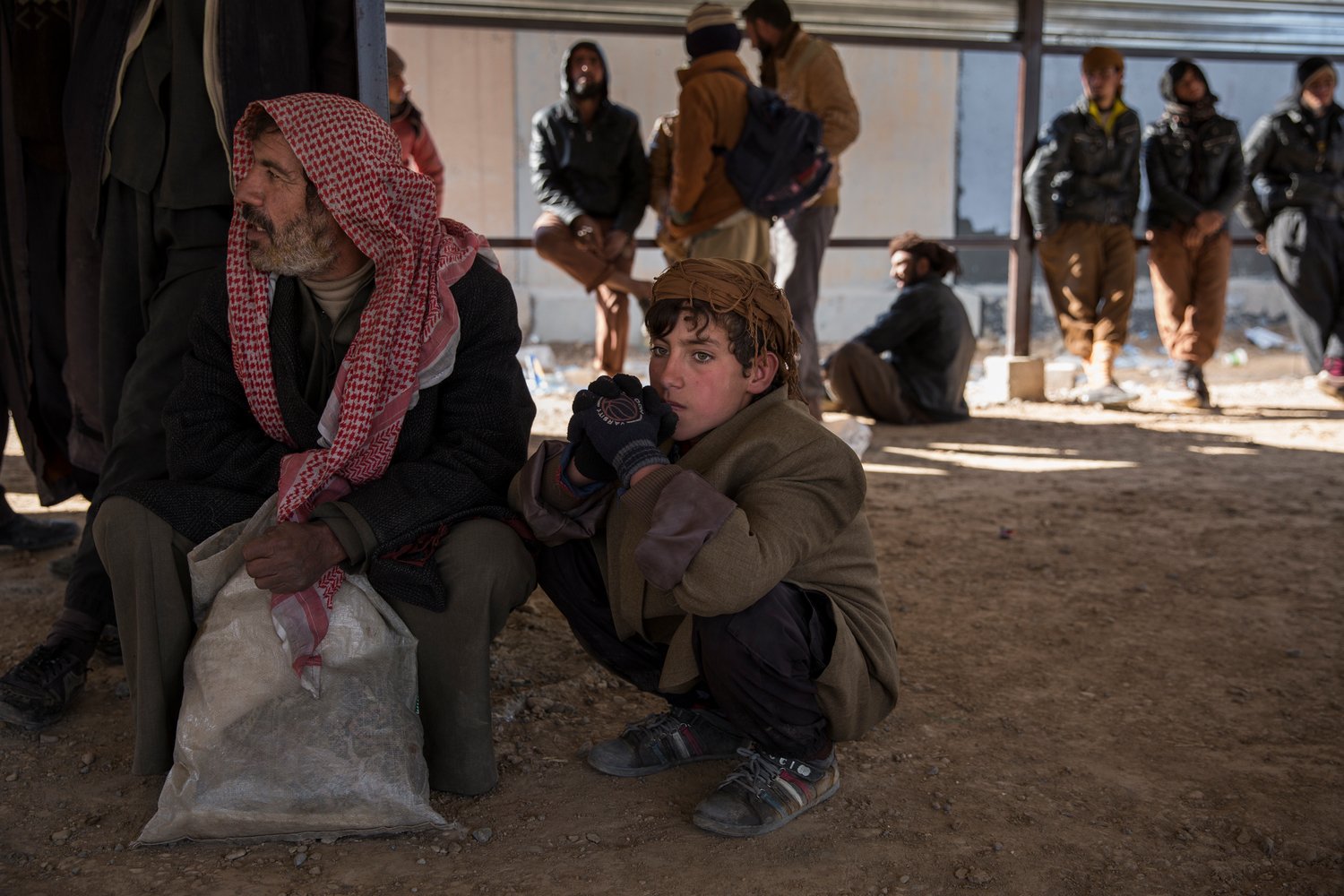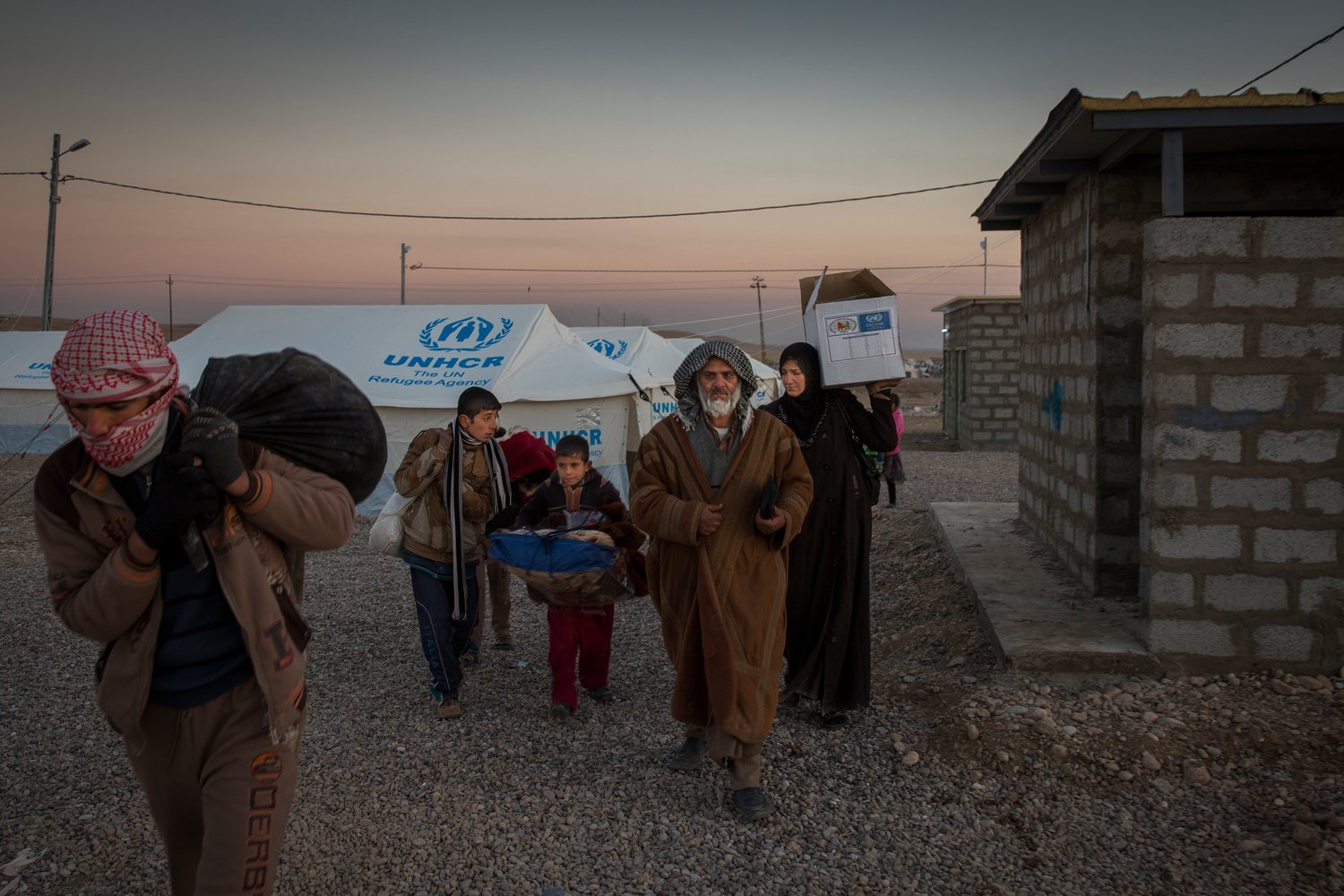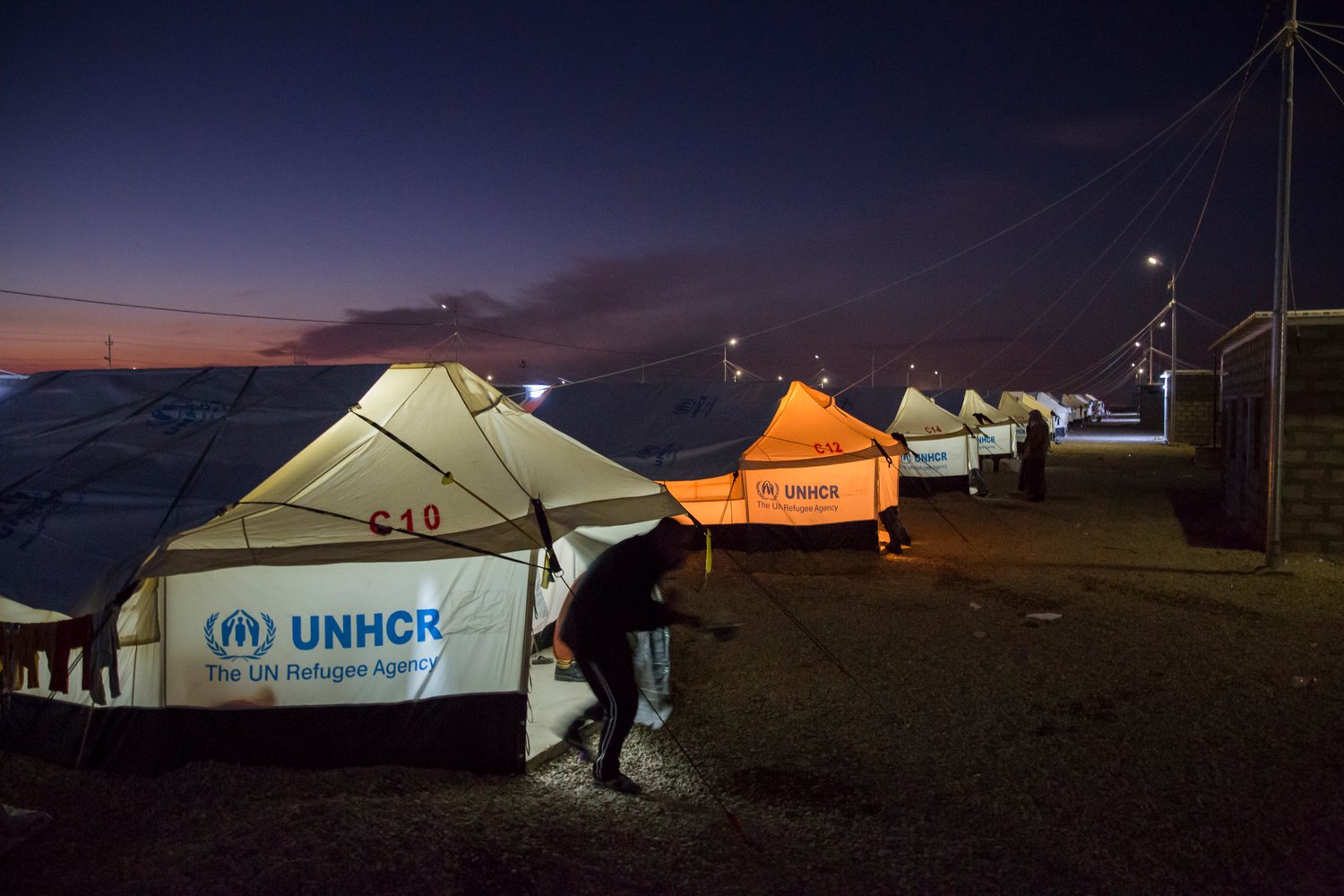Driven by hunger, Iraqis risk all to flee Mosul violence
Driven by hunger, Iraqis risk all to flee Mosul violence

LAYLAN 2 CAMP, Kirkuk, Iraq – Driven by hunger, Iraqi mother Iqbal Qalaf picked her way across a minefield in the dark with her children in search of food and safety.
“No one would be crazy enough to walk for three hours in the night but we had to – we were hungry. We had to cross through areas with mines,” she said, clutching her youngest son, shortly after they arrived at Laylan 2 camp.
She is among hundreds of displaced Iraqis who came in their hundreds at night, wading through rivers, walking across minefields and carrying their children to reach safety at the recently opened camp, south of the city of Kirkuk.
“No one would be crazy enough to walk for three hours in the night but we had to – we were hungry."
“I’m so cold and tired, we’ve been walking since yesterday evening,” said Bade Hussein, 33, as she arrived at the camp from her home town of Hawiga, Kirkuk province.
Hawiga district fell in the summer of 2014 and has been encircled since Iraqi security forces advanced towards nearby Shirgat earlier this year ahead of the offensive to retake the city of Mosul and surrounding areas.
In addition to nearly 97,000 displaced by fighting in and around Mosul since the start of the offensive on October 17, an estimated 51,000 people have also fled the deteriorating humanitarian situation in and around Hawiga since August. Civilians have reported a lack of access to medical care and children suffering from malnutrition.
Laylan 2 camp was opened by UNHCR, the UN Refugee Agency, at the start of December in response to the large numbers of displaced people fleeing Hawiga. Hundreds of civilians have been arriving at Kurdish peshmerga front lines every week after walking all night over open ground ridden with explosives.
On December 10, more than 500 displaced Iraqis arrived at Laylan 2. These numbers are expected to rise in the coming weeks as supplies in the town run critically low. Families are being forced to pay smugglers to escape to Kurdish controlled territory in order to find food.
“If you went to Hawiga you would cry from hunger. There is no medicine for the sick, nothing. People with asthma are in a very difficult situation,” said Bade whose cousin was killed by extremists because he was working as a smuggler and selling cigarettes, which is forbidden, she said.
“People fleeing for their lives are in a state of utter distress and are in need of both moral and material support.”
“There was nothing left – just some rotten wheat which we crushed to make bread, so we had to escape.” For five months, the villagers in her town had no tea. “I hoped for a bright future for my children but when [the extremists] came that was destroyed. We are in a really bad condition and we need assistance right away.”
“I hope it is better here,” said Bade, assessing her new tent in the darkness after reaching safety. “It is horrible on the other side - they take kids and slaughter them.” Her youngest daughter coughed and rattled an empty plastic jar that had contained some milk. Her four young children had skin lesions and were wearing filthy, wet clothes.
Families arriving at Laylan 2 on Saturday evening received blankets, mattress and food parcels from UNHCR and its partner organizations. As the sun set, they were led to their assigned tents.
As the Mosul conflict enters its third month, and the number of people displaced climbs towards 100,000, UNHCR is bolstering its capacity to host and support civilians fleeing the fighting as cold weather sets in.
UNHCR’s Mosul emergency response fund, set at US$196.2 million, is 57 percent funded. The largest funding gap is for the winter programme, with thousands of families in urgent need of support to survive the harsh winter cold.
“People fleeing for their lives are in a state of utter distress and are in need of both moral and material support,” said Bruno Geddo, UNHCR’s Representative in Iraq. “Our priority as UNHCR is to make sure that they receive relief items and have access to a safe place as soon as they reach us.”
Armed groups took over the district’s hospitals and ambulances, so families have not had access to medical care. Fighters confiscated civilian’s animals and farming equipment and imposed harsh punishments for smoking or trying to escape.
Families escaping Hawiga and nearby villages told UNHCR that they were living off bread made with stale wheat and water after basic items like tomato paste and sugar became too expensive.
“There was nothing to eat. The price of tomato paste was 35,000 dinars (around US$30) for one kilo and sugar was 40,000 dinars (around US$34),” recalled Qalaf. “Our kids almost died of hunger.”

